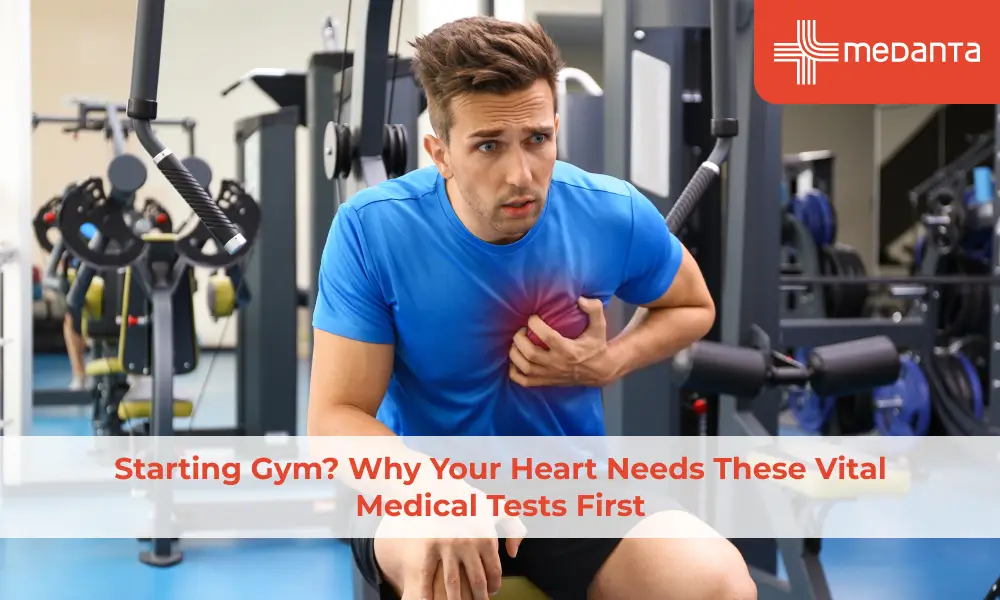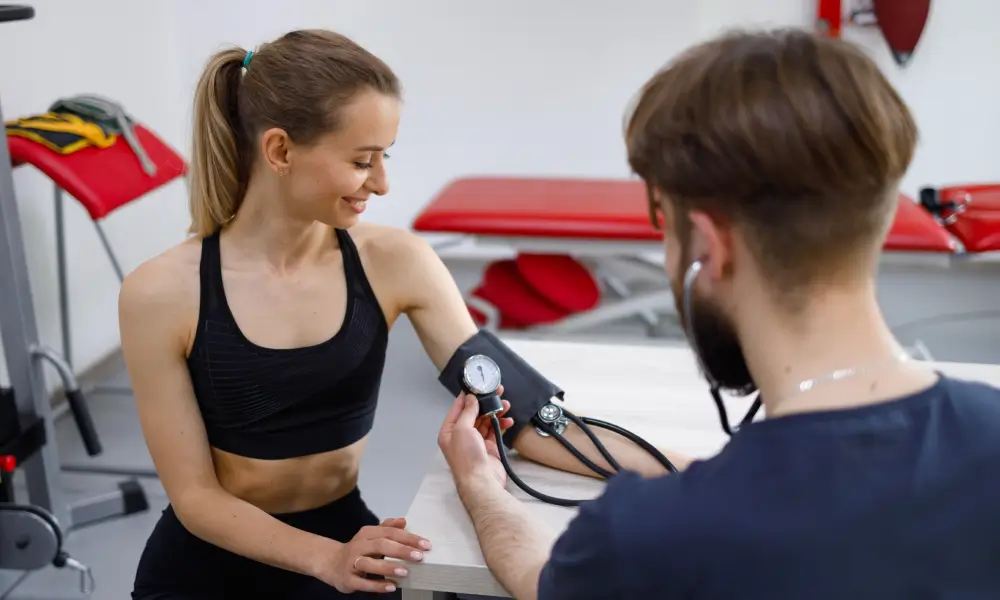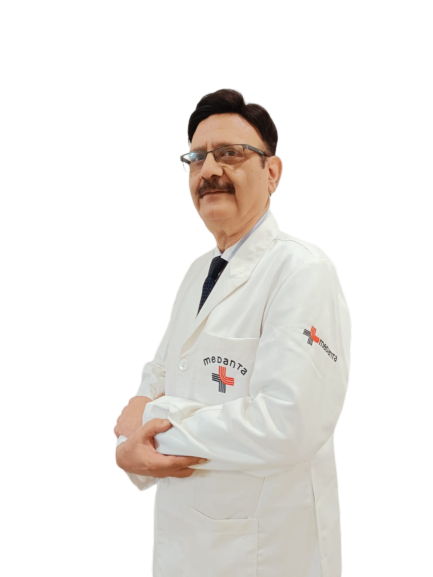Starting Gym? Why Your Heart Needs These Vital Medical Tests First

TABLE OF CONTENTS
Young adults experiencing heart attacks at gyms have become a common occurrence over the last several years. News headlines frequently feature these incidents. People's growing enthusiasm for fitness shows they care about their health. But this trend has a darker side. Young and seemingly healthy people face sudden cardiac arrest during their workouts more frequently now.
Heart attacks at gyms happen due to several reasons. Blood pressure can spike sharply if you don't ease into heavy exercise gradually. Hidden health issues like belly fat or diabetes can put extra strain on your heart without warning. Your risk of cardiac problems goes up substantially with high blood pressure, high cholesterol, smoking, and a sedentary lifestyle.
The rise in heart attack cases and deaths among young people during exercise is deeply troubling. Doctors explain that while blood pressure naturally increases during intense workouts, this becomes dangerous if you have undiagnosed cardiac problems, a weak heart, or blocked arteries. Only proper medical screening can detect conditions like Hypertrophic Cardiomyopathy.
Medical tests are crucial if you plan to begin a fitness experience, especially when you have a family history of heart disease or are over 30. These health screenings can reduce your risk of heart attacks and prevent tragic outcomes during what should be a healthy activity.
Your heart faces special challenges when you are at the gym. The body needs more oxygen during intense exercise, which puts extra strain on your cardiovascular system. High-intensity workouts and heavy lifting can be too much for your heart to handle, especially if you have existing health issues.
Hidden heart problems are the biggest reason for cardiac emergencies at the gym. Research shows that many heart attacks happen to people under 40. This number keeps growing because of bad diets, stress, and health conditions like diabetes. On top of that, genetic conditions like hypertrophic cardiomyopathy make heart muscles thicker and remain the main reason young athletes die suddenly from heart problems.
Heart problems often start with electrical issues. When your heartbeat becomes too fast and chaotic, it can lead to ventricular fibrillation, and your heart stops pumping blood properly. Blood pressure spikes during intense workouts can also break loose dangerous plaque buildup in your arteries.
Here's what else might increase your risk of a gym heart attack:
Working out too much without enough rest
Heart rhythm problems you don't know about
Not drinking enough water, which affects your body's minerals
Using supplements to enhance performance or too much caffeine
Science shows that regular exercise is good for your heart health. All the same, pushing too hard can hurt your heart temporarily, as blood tests from marathon runners have shown. The key to enjoying your workouts safely lies in knowing your limits.
Vital Medical Tests to Take Before Hitting the Gym

Medical tests could save your life before you start lifting weights. These screenings become crucial if you're over 30, have heart issues in your family, or plan to begin a new fitness routine.
Your heart's baseline check starts with an ECG (Electrocardiogram). This quick and simple test captures your heart's electrical signals to spot any abnormalities that could cause sudden cardiac failure.
A 2D Echo (Echocardiography) shows your heart in action through ultrasound imaging. The test can reveal conditions like hypertrophic cardiomyopathy and valve disorders that might otherwise go unnoticed.
The Treadmill Test (TMT) shows how your heart responds to physical stress. This test identifies blocked arteries or poor blood flow that only become apparent during exercise.
Your blood tests should include:
Troponin and NT-proBNP to detect cardiac strain
Lipid Profile and HbA1c to measure cholesterol and long-term blood sugar
hs-CRP to spot heart-related inflammation
Complete Blood Count to check overall health
Thyroid Function Tests to assess metabolism
These screenings aren't optional extras - they ensure your workouts build strength without risking your heart's health.
How These Tests Help Prevent Gym-related Heart Attacks
Medical screening protects you against gym-related cardiac events. Your heart might hide serious issues that only surface during intense workouts.
An ECG can detect abnormal heart rhythms and electrical problems that could cause sudden cardiac failure. Doctors use cardiac stress tests to evaluate your heart's blood pumping efficiency and supply. This knowledge helps them detect potentially fatal conditions like coronary artery disease or congenital heart problems before you start exercising.
Echocardiograms detect structural problems such as hypertrophic cardiomyopathy - a silent condition that took a man's life on a treadmill which could have been "easily detected through a simple scan". Early detection might have saved his life.
Blood tests allow doctors to find inflammation markers, high cholesterol, and uncontrolled diabetes—key factors that lead to heart disease and stroke.
These combined evaluations help doctors:
Compare your heart's performance to others in your age group
Check if your current treatments work effectively
Design exercise plans that match your heart's strength
Doctors emphasise that these tests are life-saving. If you're over 30, push yourself hard in the gym, or have a family history—please, get checked first.
Conclusion
A fitness experience improves your overall health, but the increasing cases of gym-related cardiac emergencies show that you just need to be careful. Medical screenings before intense workouts could save your life. A basic ECG, treadmill test, or blood work might reveal hidden dangers in seemingly healthy people.
Your heart needs this protection. These screenings do more than identify risks - they create a roadmap for safe physical activity that matches your body's capabilities.
Fitness should make you stronger, not put your health at risk. Regular exercise improves heart health, but jumping into intense workouts without a full picture can put dangerous strain on your heart. Recent tragic events show how sudden cardiac problems can affect anyone, whatever their age or fitness level.
You can take control of your health right now. Talk to your doctor about proper screenings before heading to the gym. The goal of exercise is to live healthier - make sure you're here to enjoy the results of your hard work!
FAQs
What medical tests should I consider before starting a gym routine?
If you are planning to join a gym and if you are over 30 or have a family history of heart issues, it is always better to take your doctor's advice and go for tests such as an ECG, echocardiogram, treadmill test and blood tests including lipid profile, HbA1c and cardiac risk markers.
How can medical screenings prevent gym-related heart attacks?
Medical screenings can identify undiagnosed heart conditions, assess your heart's response to stress, and detect inflammation or genetic risks. This information allows doctors to create a safe, personalised workout plan tailored to your heart's capabilities, significantly reducing the risk of cardiac events during exercise.
Why are young adults experiencing heart attacks in the gym?
Heart attacks can strike young adults at the gym for several reasons. These include undiagnosed heart issues, sudden pressure from tough workouts, or lifestyle factors. Sometimes you may have undetected conditions like hypertrophic cardiomyopathy which can get triggered by strenuous exercise in the gym.
Does regular exercise always improve heart health?
The general belief is that regular physical activity is beneficial for your heart health; an excess of anything is bad. Without proper preparation extremely strenuous exercise can cause temporary heart damage. Before opting for any exercise regimen you need to understand your personal limits and gradually increase exercise intensity.
How often should I get my heart checked if I'm a regular gym-goer?
If you hit the gym often, it's a good idea to get your heart checked out once a year, or more if your doctor says so. This is true if you're over 30 or do intense workouts. Regular check-ups can help monitor your heart health and adjust your fitness routine as needed.





